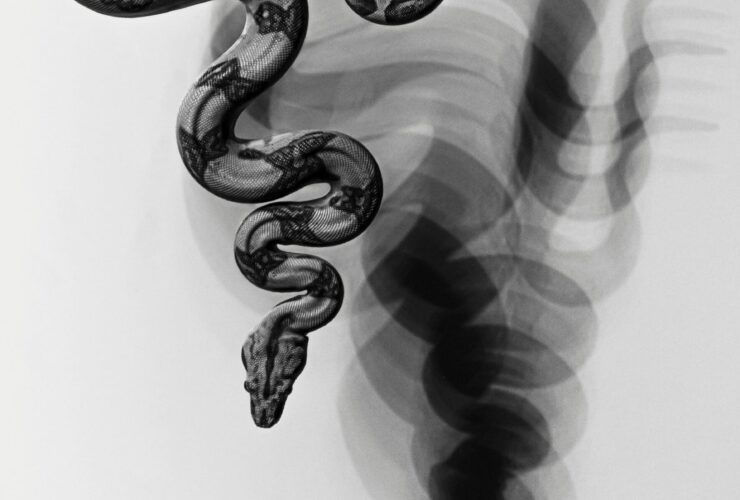Is water baptism necessary for salvation? Honestly, I’ve come to loathe this question. It’s too philosophical for everyone’s own good, and it causes nothing but confusion. What do we mean by necessary?
For starters, everyone agrees that God is not bound by the water used in baptism to save someone. He does not depend on earthly material or substances or time, He is a nonmaterial atemporal Being. He can save whomever He chooses whenever He wants, so to speak, regardless if they pass through the depths or not, whether by immersion or affusion. Even the Roman Catholic Church affirms this in doctrine: Baptism of breath and Baptism of blood. By breath, one is baptized into the Kingdom of God by the sheer contrite desire to be baptized into Christ but was not able to receive it before they passed away. By blood, one is baptized into the Kingdom through the faithful and self-sacrificial act of martyrdom for Christ. Protestants affirm these in principle, as well. Life is hardly cookie cutter, and everyone, literally everyone, as far as I have studied, doctrinally account for this fact. Regardless of the means or mode, everyone recognizes that salvation depends on the mercy of God necessarily.
Everyone also agrees that we, as Christians, must baptize people “in the name of the Father, and the Son, and the Holy Spirit” as part of our priestly vocation. Everyone agrees that no one can reject baptism because God commands it. Baptism is not optional—it is necessary—ecclesially speaking. It is necessary for the clergy to do, which necessarily implies it is necessary for the laity to receive. And if you’re a Baptist, how much more necessary if the clergy and laity are the same office! (1 Peter 2:9) Now if you cannot be baptized, if you are unable to receive it, then you’re not held morally/spiritually accountable for something you cannot do. A judicial fact that ought to include infants, no? Considering parental, communal, and Church intercession is required for their physical deliverance and protection and discipleship, and that both the parents and community and clergy together desire the baptism of their children into Christ, is the child not saved by desire also? Especially when Paul considers the children of a single believing spouse a saint by default (1 Corinthians 7:14). Can this principle also not apply to Baptists who painstakingly wait the day when their children receive baptism so that they remember it, too? Either way, our faithful actions are contingent upon the mercy of God even when it is necessary for us to baptize and be baptized, and even when we are not able to be baptized.
“As you do not know the way the spirit comes to the bones in the womb of a woman with child, so you do not know the work of God who makes everything.”
Ecclesiastes 11:5
You can see the difficulty of this, can’t you? Like so many Christian dilemmas, it is like trying to reconcile predestination and freewill, to explain how two different worlds can become one, to articulate a marvellous reality beyond our grasp (cf. Psalm 131:1-3). To reiterate what I said before: For physical temporal beings—humans—baptism is necessary to do, but it may not always be necessary to receive in order to be saved because the One who saves is a nonphysical timeless Being. Salvation is an eternal person. All this chatter about the necessity of the logical order of salvation is also of little value when it is precisely a Being outside of space and time who is doing the saving, and we the receiving. It is no longer a matter of logical whenness or systematic precision per se. I think the NT, especially the book of Acts, paints that picture very vividly. Sometimes salvation through the Holy Spirit comes by faith before baptism, such as the exception with Cornelius (Acts 10:44-48) and most times salvation comes by the laying of hands after baptism (not the baptism itself), such as with Apollos and Timothy (Acts 19:6; 2 Timothy 1:6). Regardless of the procedural order or the arrow of time, all disciples were baptized (albeit typically before receiving the Holy Spirit), and none of them rejected baptism as necessary, as if the verbal profession was more important than the bodily profession.
Consider the consequences
By contesting its necessity, we contest that the body need not participate in what the words commit the body to! How can that be so? We die with Christ in baptism, do we not? (Romans 6:3-6) How, then, do we say, it is not necessary? Do we not speak with our hands? To teach baptism is not necessary is to cut the body from the soul, the physical from the spiritual, the confession from confessor. It is to reinstitute that gnostic dualism—flesh bad, spirit good—as if it is only the inside that counts, and that our works are disconnected from our faith, actions detached from belief, as if faith does not give birth to works, as if faith in itself completes itself (cf. James 2:22-26). To contend otherwise is to treat our present bodies with contempt, as if we are all ghosts in machines wearing meat suits destined for oblivion, as if we will possess strange new flesh upon resurrection, as if the incarnation and bodily ascension of Christ are not essential. This is not so (Job 19:25-27).
Moreover, there is something troubling still. The combination of beliefs that ordinances are just signs or reflections or a dramatic portrayal of faith, not realities themselves, paired with this new low-church standard and bare necessity mindset, have inevitably led to the belief that ordinances are things we do just cause, insofar that we don’t even need oil when we anoint!—Honestly!—I’m not kidding. The attitude is ‘if the elements are not necessary, why bother using them?’ I’ve witnessed this firsthand. Do we not need wine when we drink? Bread when we eat? Water when we baptize? Or is it all proverbial, memorial symbols of no avail? Let me ask it another way: Are we truly made by and through water? Are we truly created out of the earth? To be born into God’s visible kingdom here on earth, one must be baptized by the same element that created the earth (2 Peter 3:5). To say we don’t need water is to say we don’t need a body—but we do need a body. We are creatures. God does not need a body. He is Creator. He is not bound to our physical limitations. He rightfully supersedes it. But we are physical creatures formed from the soil designed to take dominion of the earth. Just as God restored the earth in the Flood, he wants to restore mankind (ground) through the waters of baptism. Just as Jesus healed the blind man’s eyes with mud, He also wants to heal us in the same way he created us. Jesus did not put the ‘proverbially’ mud on the blind man’s eyes, he wanted the blind man to physically wash off the mud to be restored. We are creatures of contingency; we need water and food to survive. Why does this all the sudden not apply to baptism? To anointing? Heck, to communion, too.
The symbolism of baptism is historical, narratival, typological, and ontological. God created the visible world with prophetic symbols, imagery, and meaning—we are truly made in the image of God, are we not? It’s not just wordplay. Water is that first primordial substance we and the world were created by and through. Water baptism, therefore, is not a fictional reflection of reality, it is the visible reality of our restoration. To teach we don’t need the water is to treat our soul as if it is frictionless with the physical world.
If we willfully protest the doctrine that ‘baptism saves’ or teach that ‘water is not necessary for salvation’, who are we actually fighting against? God, Satan, or man? We should consider what we are implicitly teaching the congregation when we affirm such ideas.
Some final thoughts
Again, you’re not morally or spiritually accountable for something you cannot do, only what you can do. If you can be baptized, you must be baptized if you want to visibly participate in God’s kingdom. The invisible is in God’s merciful hands. But that does not mean the invisible will not normatively manifest visible. Perhaps to Cornelius, the sole exception in the text, baptism was primarily just a sign of his commitment to Christ having been sealed by the Holy Spirit beforehand, but to us, and its reason for being in Scripture, it was a monumental sign that the Gentiles would come to Christ through faith. Even so, Peter still saw the need for baptism, which is indicative that it is more than just the process itself that saves. Nevertheless, for Apollos and Timothy it was more than that, too. It was as Peter said: “Repent and be baptized every one of you in the name of Jesus Christ for the forgiveness of your sins, and [then] you will receive the gift of the Holy Spirit.” (Act 2:38) The logical order employed by Peter is first repentance through faith that which lays the foundation to receive the gift of God’s grace. The rule is: Be baptized in the name of Jesus Christ for the forgiveness of sins. We should not aim to switch the exception with the rule (even though we may very well be living in an exceptional time). The logical and procedural order of salvation, as the NT describes, is vital yet circumstantial. Necessary for us, negligible for God.
So, again: Whence is it necessary? God is the one who saves, and God is the one who commands it. Therefore, the One who does the saving commands we be saved in such-and-such way. Not by the mechanism, but in response to Him. Not ultimately, but normatively. God is not bound to when. He is eternal. God is not bound to what. He is non-material. Therefore, the baptism by the Holy Spirit and fire is not contingent on our earthly water, though there is friction and overlap between the physical and spiritual (Luke 3:15-18). We are morally obligated to baptize and be baptized. We are spiritually obligated to obey God. So, yes, baptism is necessary for salvation, even when it isn’t. To challenge its necessity is to wonder if we can reject it. And we cannot. We must do it. We must receive it. God said so. But ‘how is baptism necessary?’ is a different question of a philosophical bent, and ‘when is it necessary?’ is a theological one worth discussing another day.
And for those who wonder: Why would God command something that He does not need us to do? I ask you: Why would God create us if He doesn’t need us? Like all things, God does not need us to do anything. He does things for our own good, and we need to do them for our own good. As to how, I am comfortable appealing to mystery.
Just as the body apart from the spirit is dead, so also faith apart from baptism is dead. As you do not know the way the spirit comes to the bones in the womb of a woman with child, so you do not know the way the Spirit indwells the flesh through the waters in baptism. There is mystery in birth just as there is mystery in rebirth.
Therefore let us leave the elementary doctrine of Christ and go on to maturity, not laying again a foundation of repentance from dead works and of faith toward God, and of instruction about washings, the laying on of hands, the resurrection of the dead, and eternal judgment. And this we will do if God permits.
– Hebrews 6:1-3

Matlock Bobechko is the Chief Operating/Creative Officer of Bible Discovery. He is an eclectic Christian thinker and writer, award-winning screenwriter and short filmmaker. He writes a blog on theology, apologetics, and philosophy called Meet Me at the Oak. He is also an Elder at his local church.






